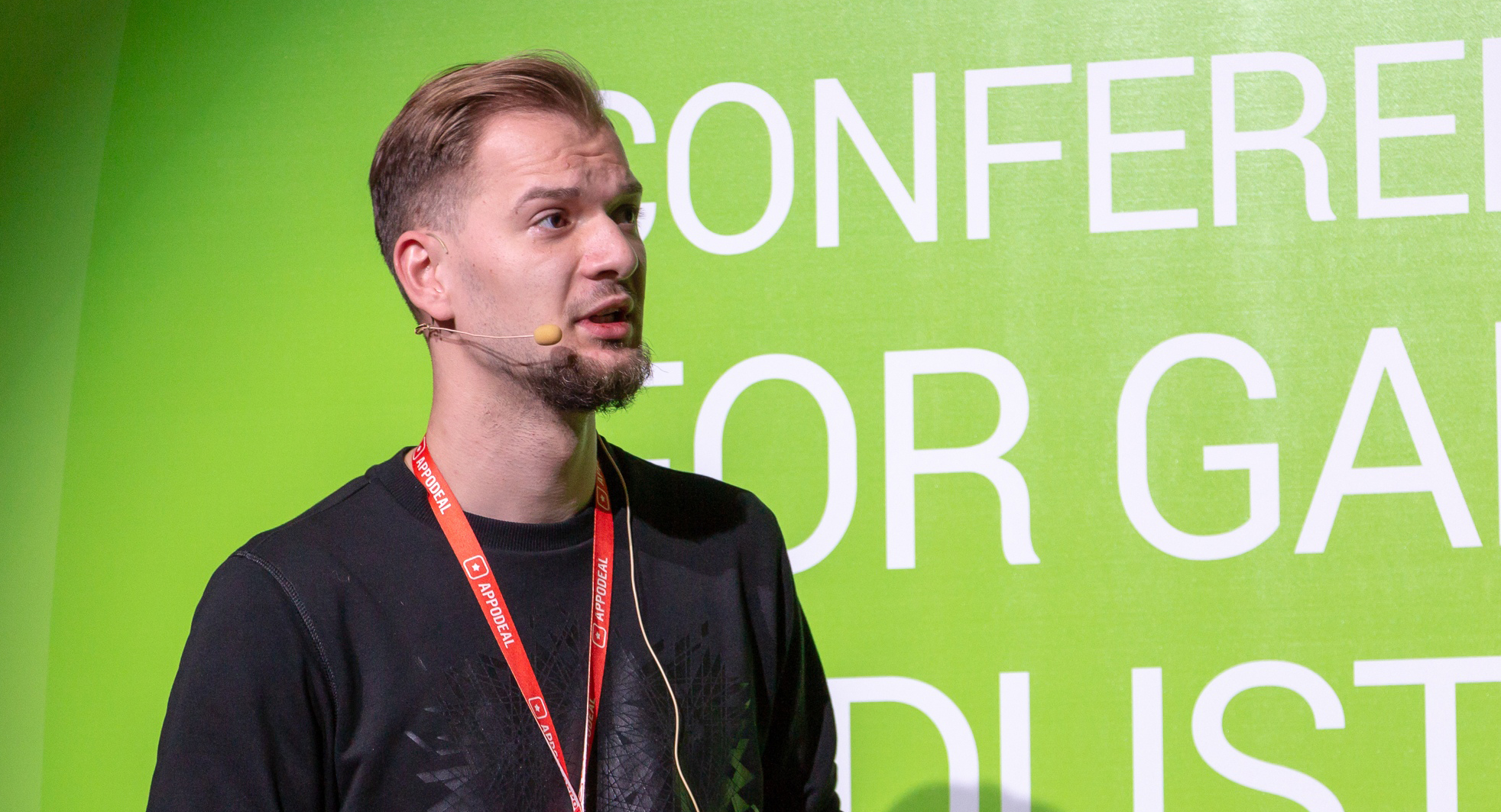The head of the Russian office of BlueStacks Nikita Zatsepin said App2Top.ru about the central trends of the outgoing year.

Nikita ZatsepinHow was 2018 for you personally?
The year has passed, of course, powerfully, very rapidly. I managed to visit several new countries, read some good books. The second half of the year went without cigarettes, I hope now that the whole of 2019 will pass without them.
Speaking about the musical component (and music plays a very big role in my life), I managed to attend two festivals and hear live a huge number of outstanding artists of our time — from Nick Cave & Bad Seeds with Inner Circle to Kendrick Lamar and The XX. I also started learning to play the drums, which I’ve been dreaming about for a long time.
And, of course, I was lucky to speak at several conferences, meet a lot of new people and gradually comprehend the very vague and ephemeral work-life balance that everyone is talking about.
The most important thing, of course, is that this year I began to better understand the directions where I would like to move in the coming years. It will be interesting to see in a few years whether it will succeed.

Cape Roca in PortugalHow was the year for your company?
A bunch of things happened at BlueStacks. Firstly, we have passed the milestone of 300 million installations. Now we are adding about 200 thousand client installations per day around the world, which, of course, is breathtaking, because it’s the size of a small city in numbers!
Secondly, an important milestone for the Russian branch was its expansion. Now we have a small team that allows us to close a variety of tasks and work more closely with the region. This process is now taking place in a number of countries, so if at the beginning of the year the BlueStacks team as a whole numbered about 130-140, now it is already 200 people with a little.
One of the key points is the partnership with MSI. Now every gaming laptop of this company is able to run Android games “out of the box” with our help. It’s cool that the manufacturers of desktop gaming hardware finally saw the mobile market and began to enter it. I hope we will see more of this in 2019.
If we talk about the Russian branch of BlueStacks, then the main event I would call participation in Igromir, which was, if not global, but a very significant event for me, even though I myself could not get there for a number of reasons. Firstly, it was a project completed in a very short time (if I’m not mistaken, it took less than two weeks from conception to implementation), and secondly, we received excellent feedback and experience. In 2019, without any doubt, we will meet our players more often at gaming festivals.

Cosplayers distribute branded BlueStacks chocolate at Igromir 2018What event of 2018 do you consider the most important for the industry?
A lot of events have happened. All of them are equally important, so it’s difficult to choose one. Perhaps the most memorable for me was the refusal of Epic Games to distribute Fortnite on Google Play. We will see the full effect of this decision only in a few more years. Well, the history of Fortnite itself, of course, is impressive.
What trends of the outgoing year would you note?
Firstly, it is impossible not to note the growing regulation of the industry. All these cases with the regulation of loot boxes in Belgium, the verification of players and the ban on spending more than X hours a day in China, blaming games for all the sins of raising children in Russia, and so on. There were examples of this years earlier, but this year it has already reached quite serious momentum, one GDPR is worth something (a paradise for lawyers who have hourly pay).
Secondly, the explosive growth of hyper-casual games. Voodoo, Playgendary, Lion Studios — all these guys have shown that you can earn on the delta between advertising revenue and the user’s price, if this price is very low. The history of dividing CPI by the number of publisher projects allows you to compete with games with a high LTV, which is also interesting. To say that it shook up the advertising market is to say nothing! One of the negative effects of this trend for the industry is increased competition in the casual segment, it has become more difficult to attract traffic. Of the positive ones, a lot of people have become players who have not played games at all before. Maybe they will get to more intricate game systems over time.
Thirdly, there have been attempts to disrupt the status quo. I’m talking about the same story with Fortnite and Epic Store. We’ll see how it goes, but the initiative is good. In the end, everyone will benefit from competition. Let’s see if the “epics” will be able to give battle to both Steam and Google Play.
The idea of providing tools for building your community is also very good. Look at what Discord is doing. It remains to find a new Fortnite, or preferably several, and bring them to your platform, which is what I wish my colleagues.
Fourth, video ads and playable ads. Without them, there is no way and nowhere, no one will be interested in banners. On the other hand, the cost of developing such creatives is still very high. For this reason, the direction of automating the creation of such creatives looks interesting. This is a very fast-growing story today. In addition, this year two directions of development of advertising tools have been identified: simplification/automation of everything and everything to reduce the entry threshold of specialists (Google UAC) on the one hand, and the complication and provision of an increasing number of fine—tuning targeting (FB Ads Manager) – on the other.
Fifth, of course, the growth and number of types of fraud. It seems increasingly necessary to allocate an analyst of such processes to a separate position by analogy with banking processing and fraud monitoring. Big companies already have it. And it seems that the sword-shield war will only grow.
Sixth, consolidation of the gaming market. Tencent accounts for 15% of gaming revenue in principle. And I don’t think anything will prevent the Mastodons from continuing to buy assets further. Except, perhaps, state apparatuses.
Seventh, of the trends that are on the wane, I will note the hype around blockchain and cryptocurrencies. After the turmoil of 2017, there were, of course, good projects, but there are not many of them. And the global question remains: does anyone (states at the macro level and game developers at our level) need to create economic systems that are not controlled by anyone and in any way? Apparently not.
Eighth, the “Wild West” that is happening in the video blogger market is slowly beginning to pass. There are opportunities to work on performance, business literacy of opinion leaders is growing. The market, of course, is still overheated. Now brands are increasingly buying advertising from smaller local influencers in order to recoup investments, but it seems that next year we will see more examples of better interaction of brands with bloggers, with a more predictable exhaust, from which everyone should benefit.
What are the third-party projects of this year that you liked the most?
Unfortunately, we didn’t manage to play as much as we wanted this year, and even less to go through to the end. I note God of War is a wonderful game with a wonderful story. I went to the end with joy. In addition, I will note RDR2, but only from the side of working with light. I experienced something incredible on the console, actually, five years ago. With this light, no super-clear-textures-of-leaves-on-trees are needed. And so everything looks just amazing.
From mobile — I really liked Rise of Civilizations. This is a good example of a slick hardcore online strategy with a huge social bias. Reigns: Game of Thrones is a long—awaited continuation of a wonderful game in the most suitable setting for this. And, of course, Brawl Stars. Stuck in it. There are questions about the accumulation of hard currency (after a few dozen matches, zero is still sadly visible in the counter), but the project is excellent, and I think it was not for nothing that it was kept in softlanche for so long, it will still show itself.
Of the games of compatriots, it is impossible not to mention Age of Magic — an outstanding game from Playkot. I will also note a bold project from compatriots — Cheapshot. This is a whole new level of using the best hardcore mechanics (farm in AR). I wish the project great success.
